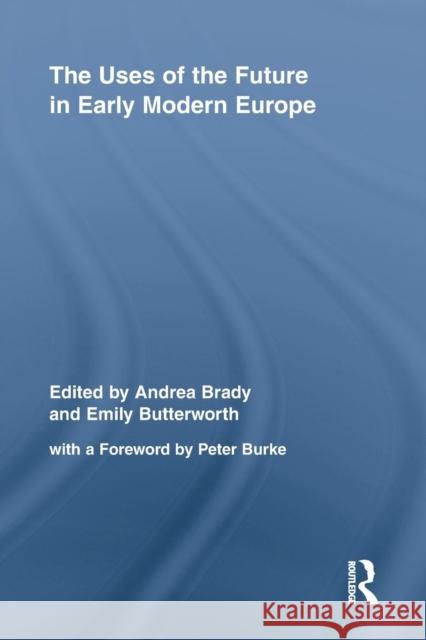The Uses of the Future in Early Modern Europe » książka
The Uses of the Future in Early Modern Europe
ISBN-13: 9781138878433 / Angielski / Miękka / 2015 / 242 str.
The Uses of the Future in Early Modern Europe
ISBN-13: 9781138878433 / Angielski / Miękka / 2015 / 242 str.
(netto: 279,82 VAT: 5%)
Najniższa cena z 30 dni: 261,89
ok. 16-18 dni roboczych.
Darmowa dostawa!
Is modernity synonymous with progress? Did the Renaissance really break with the cyclical, agrarian time of the Middle Ages, inaugurating a new concept of irreversible time in a secular culture defined by development? How does methodology affect scholarly responses to the idea of the future in the past? This collection of interdisciplinary essays from the fields of literary criticism, cultural studies, politics and intellectual history offers new answers to these commonplace questions. They explore elite and popular culture, women and men s experiences, and the encounter between East and West, providing a comparative view on the range of personal, political and social practices with which early modern people planned for, imagined, manipulated or even rejected the future. Examining poetry, architecture, colonial exploration, technology, drama, satire, wills, childbirth and deathbed rituals, humanism, religious radicalism and republicanism, this collection provides new readings of canonical early modern texts and insights into popular culture. With a foreword by Peter Burke."
This collection of essays examines the idea of the future in early modern European literature, politics, religion, science, and social life. Investigating how both elite and popular writers represented their access to or control over the future, it proposes new insights into one of the defining characteristics of modernity.











